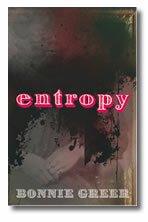| |
BONNIE GREER talks to Picnic Publishing about the novel in the 2lst century . . .
 |
‘One of the realities today for publishers and writers alike is that publishing has become a part of the entertainment industry.
Maybe it always was and it’s just becoming more apparent now, but this fact seems stronger than ever.
There is a huge challenge for publishers as to how to keep the next generations reading at all, buying books. I don’t envy anyone publishing today. It’s hard to see what’s ahead.
But it seems to me that people will always read because reading is not only about pleasure-which is important-but is also the way that we expand consciousness.
That old cliché about expanding the mind through reading is true, and more than that-it also helps us to move beyond the known.
|
The novel, to me, should be true to its name “novel”. That most of us read-and write-19th Century models means that, in some senses, the form itself has not moved on. And in not moving on, our minds-WE-have not moved on.
If novelists and publishers cannot imagine or make room for other ways of telling stories, other ways of mapping out reality-they have, in effect, retarded us.
It’s a bit like an industry that continues to manufacture carts for horses-the world is a much more complex than the typical novel explores.
But that “typical” novel is the bedrock of the industry, what keeps the lights on, and I have immense respect for the likes of Dan Brown, for example, because that kind of book is damn hard to do.
But, as Picasso and the Cubists, Pollock and action painting; Freud in re-inventing the portrait; downloads and You Tube; Heston Blumenthal and scientific eating; Barrack Obama and his internet campaign for President of the United States; even haute couture in the Mouret wrap dress that can remake your body; theatre; dance; everything is moving except the form of the novel.
Partly this is because the novel is taken as the repository of story and story is considered a, b, c. But we remember in fragments, in streams of consciousness; we make links between things that don’t look related on the surface, but actually are, and we play. We play a lot with all the elements which make up the world that we come to, every moment, understand.
For me, the novel that is truly novel, roots us in the present and takes us forward.
The novel is not nostalgic.’
|
|